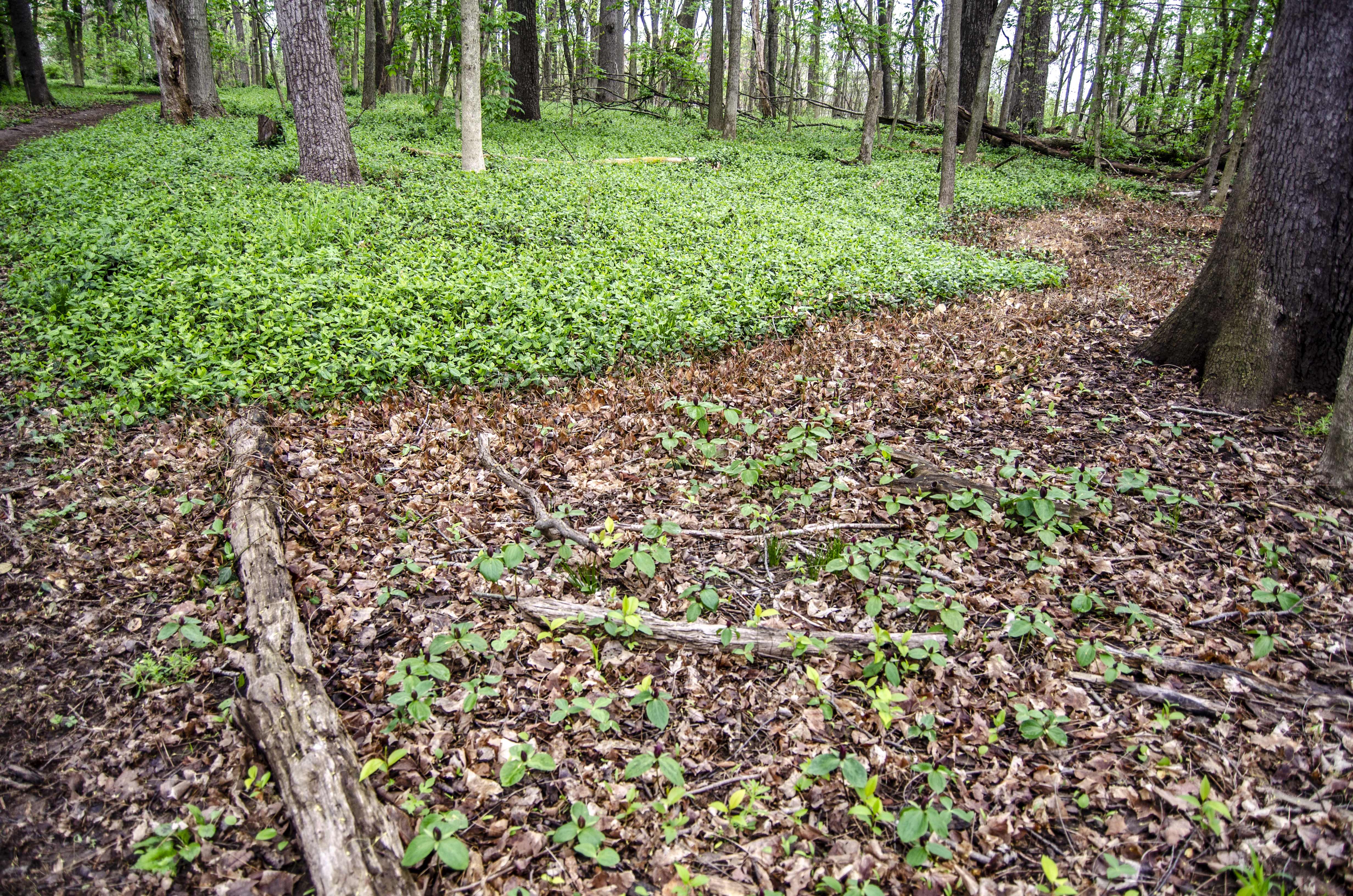Kentuckians can help prevent spread of invasive plants
Kentuckians can help prevent spread of invasive plants


Spring is in the air, but the improving weather also means a rise in invasive plants species. Invasive plants can have major biological, economical and aesthetic impacts on Kentucky, however, an assistant professor in the University of Kentucky College of Agriculture, Food and Environment offers methods to contain and prevent these plants from spreading.
“From the woods to your yard, invasive plants are a problem in a wide range of settings,” said Ellen Crocker, assistant professor for forest health extension in the UK Department of Forestry and Natural Resources. “They can come in all shapes and sizes. From invasive trees, like callery pear or tree of heaven to spring emphemerals like lesser celandine.”
Not only can invasive species take over the garden but they can degrade native habitats, decrease richness of native species and contribute to the loss of biodiversity. Invasive plants may negatively affect the state’s economy when they intrude on commercial fishing, aquaculture operations, forestry and agriculture as their removal comes at a cost. When recreational events such as hunting, hiking, fishing, swimming and boating are no longer possible or pleasant, tourism revenue suffers.
Managing invasive plants requires regular monitoring and removal of the plants to promote the health of diverse native plant communities. Invasive plant control can take many forms, such as pulling up seedlings to herbicide treatments, depending on the plant and location.
Crocker said one way to keep invasive plants from spreading is simply cleaning after a hike.
“This can prevent invasive plants, whether be it seeds or tiny bulbils, from being accidentally moved by hikers on trails,” she said. “This can easily happen, especially under muddy spring conditions.”
Hikers should make sure to clean off any boots, clothing or equipment, especially after visiting a place known to contain invasive species.
“Whether it is rinsing the mud off boots before the next hike or cleaning the wheels of an ATV between muddy adventures, preventing the arrival of invasive plants this way is much easier than trying to manage them once they have already established,” said Crocker.
More information on ways to control invasive species can be found at https://forestry.ca.uky.edu/invasive_plants or by visiting county offices of the UK Cooperative Extension Service.
Extension Forestry & Natural Resources


